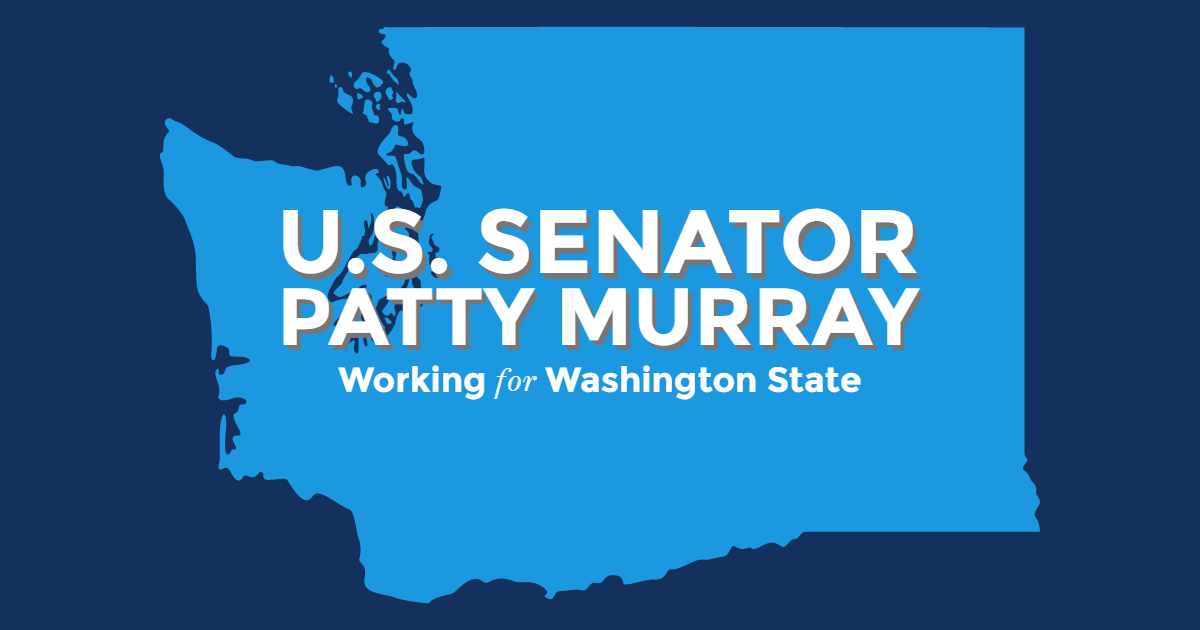Source: United States Senator for Washington State Patty Murray
New bipartisan infrastructure bill includes $65 billion to ensure every American has access to reliable high-speed internet
Bill also includes Senator Murray’s Digital Equity Act, which would take important steps to bridge the digital divide and digital skills gaps
Senator Murray: “Everyone deserves and needs equal access to the internet to succeed. This funding and my Digital Equity Act are important steps towards ensuring every person in our state has the ability, tools, and skills to get online”
(Washington, D.C.) – Today U.S. Senator Patty Murray (D-WA) helped pass the bipartisan Infrastructure Investment and Jobs Act which includes a $65 billion investment to help families in Washington state and across the country access reliable, high speed internet. This historic investment includes Senator Murray’s Digital Equity Act, which will help close the digital divide by funding activities that seek to provide individuals and communities with the skills, supports, and technologies necessary to take full advantage of a broadband internet connection when they have one. Additionally, the Infrastructure Investment and Jobs Act will build high-speed broadband infrastructure to reach 100 percent coverage, promote transparency and competition, and reduce the cost of broadband internet service.
“High speed internet is as critical as running water or electricity. For everyone in Washington state, a reliable internet connection means being able to get an education, apply for jobs, or access important benefits like unemployment. This was true before the pandemic and COVID-19 has only shone a harsh spotlight on worsening digital inequities,” Senator Murray stated. “This bill puts us on the path toward universal broadband and will help cut costs while bridging the digital divide. Everyone deserves and needs equal access to the internet to succeed. This funding and my Digital Equity Act are important steps towards ensuring every person in our state has the ability, tools, and skills to get online—and I’m going to keep working with the administration to ensure the jobs we create deploying broadband are union jobs with strong protections for workers.”
Senator Murray was able to secure a significant funding increase from $1.3 billion to $2.75 billion for the Digital Equity Act. Senator Murray first introduced the Digital Equity Act in 2019, well before COVID. Murray worked hard to build a robust coalition of 100+ organizations to secure strong bipartisan consensus and support for this bill.
Senator Murray’s Digital Equity Act included in the bill will establish two grant programs to be administered by the National Telecommunications and Information Administration (NTIA) to promote digital equity nationwide by:
- Building Capacity within States through Formula Grants: Creates an five-year $300 million per year formula grant program for all 50 States, the District of Columbia, and Puerto Rico to fund the creation and implementation of comprehensive digital equity plans in each State.
- Spurring Targeted Action through Competitive Grants: Creates a five-year $250 million per year competitive grant program to support digital equity projects undertaken by individual groups, coalitions, and/or communities of interest.
- Supporting Research and Evidence-Based Policymaking: Tasks NTIA with evaluating digital equity projects and providing policymakers at the local, state, and federal levels with detailed information about which projects are most effective.
Specifically, the Digital Equity Act would be a historic investment in digital equity for local communities– focusing on key needs outside of just broadband deployment. The funding from the Digital Equity Act grants could be used for anything from laptops and devices for students to digital literacy classes for seniors at a local library.
Of the $65 billion total investment in broadband, Washington state will receive at minimum an allocation of $100 million to help provide broadband coverage across the state, including providing access to the at least 241,000 people in the state who currently lack it.
The bill will also help lower prices for internet service by requiring funding recipients to offer a low-cost affordable plan, by requiring providers to display a “Broadband Nutrition Label” that will help families comparison shop for a better deal, and by boosting competition in areas where existing providers aren’t providing adequate service.
It will also further help close the digital divide by requiring the Federal Communications Commission to adopt rules to address digital redlining, and by creating a new, permanent program to help more low-income households access the internet. 1,409,000 or 19% of people in Washington state will be eligible for the Affordability Connectivity Benefit, which will help low-income families afford internet access
###
